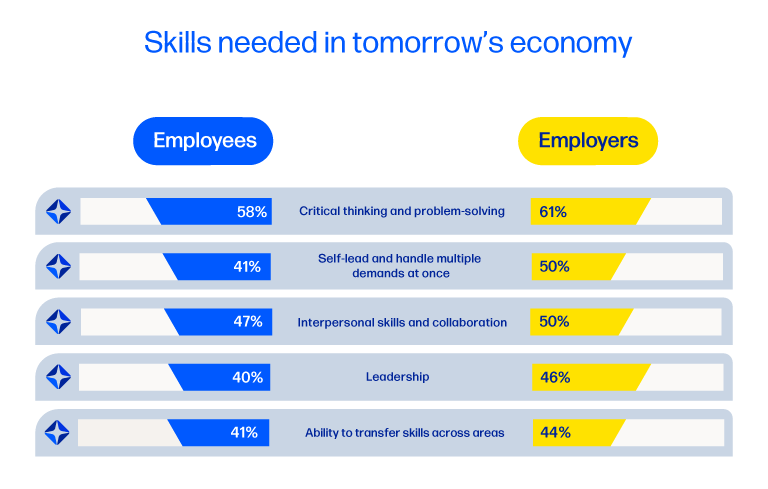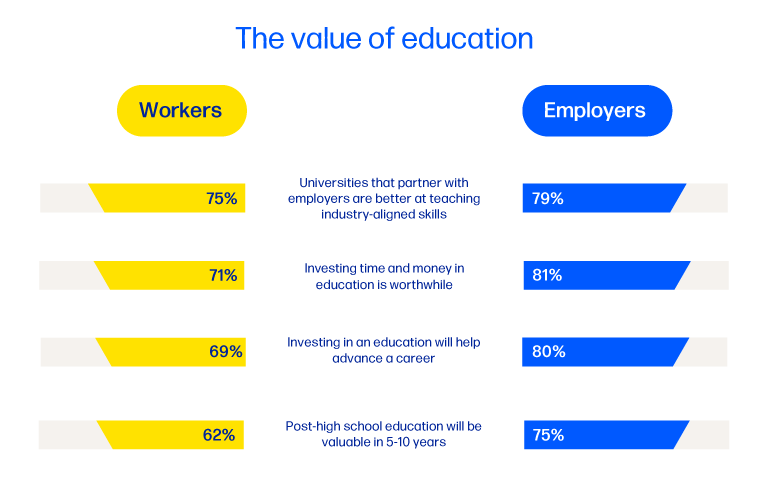To help you stay ahead of the talent gap employers have identified, it’s worthwhile to ask your workplace leadership if you have access to professional development opportunities. You can also explore online programs to focus on gaining practical skills and specialized knowledge you can put to work right away.
Have a question?
Chat with a live agent now.
Need help?
No thanks
2025 annual job security report





Our research also revealed some of the durable skills that will be needed for the careers of tomorrow, with critical thinking, collaboration, and leadership among the top for both workers and employers.

Building durable skills in areas like leadership and complex problem-solving can make a difference for roles across nearly every industry. With both employers and workers agreeing on the importance of these abilities in our survey, it’s a smart move to take the time to upskill or reskill. Not only will you learn the latest approaches to communication, decision-making, and more, but you’ll also demonstrate your motivation and commitment to lifelong learning and tackling the talent gap.


Education remains a powerful tool for bridging the skills gap in today’s job market, as reflected strongly in our research. With the ease of online learning, professional development is within reach for today’s workers, whether you’re starting your career or looking to level up.

Learning emerging AI skills today is a savvy move when it comes to job security as these tools are already augmenting human-powered workflows across industries. Our research confirms the need to upskill in AI, with hiring managers and staff alike taking strategic moves to align with future needs now.



